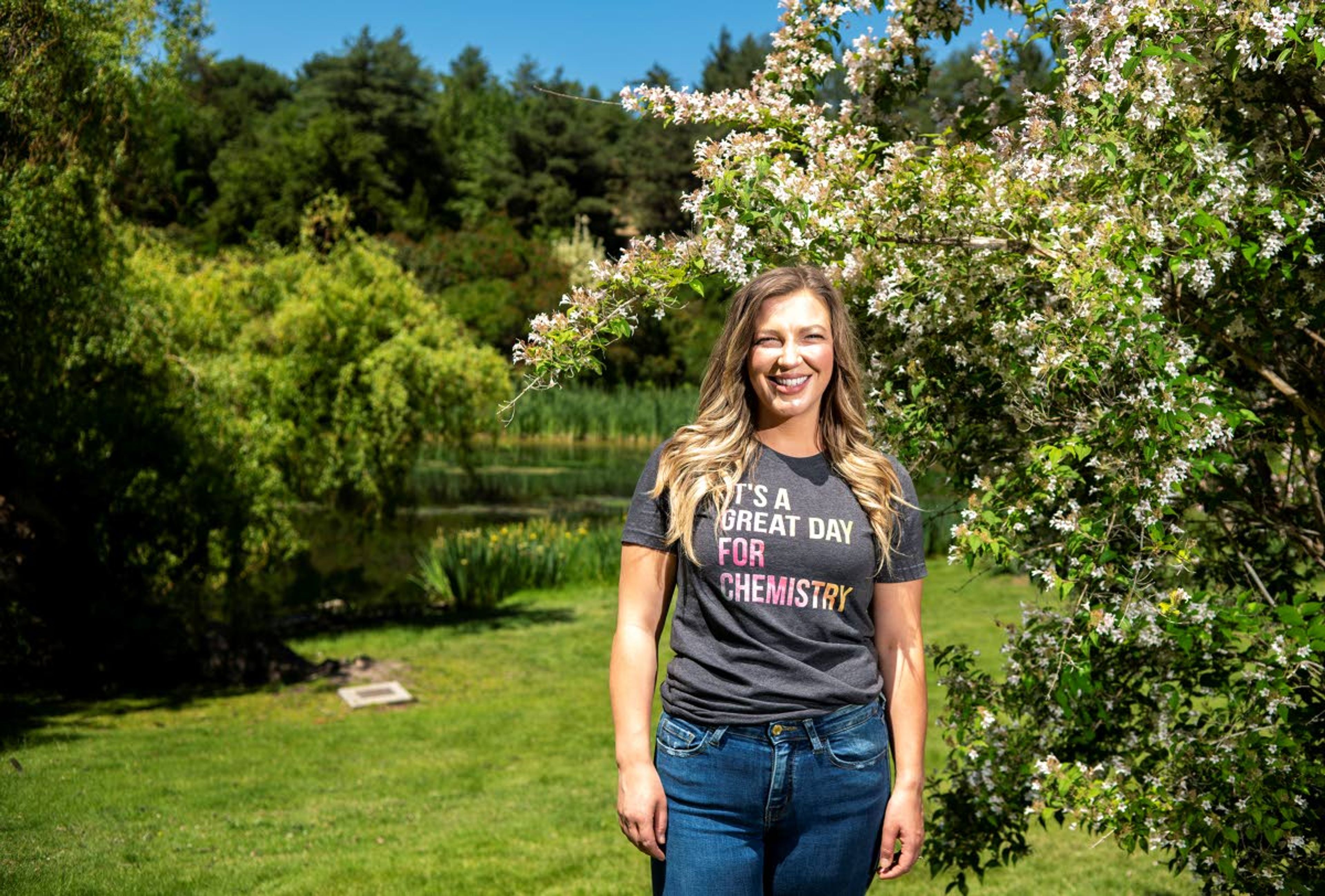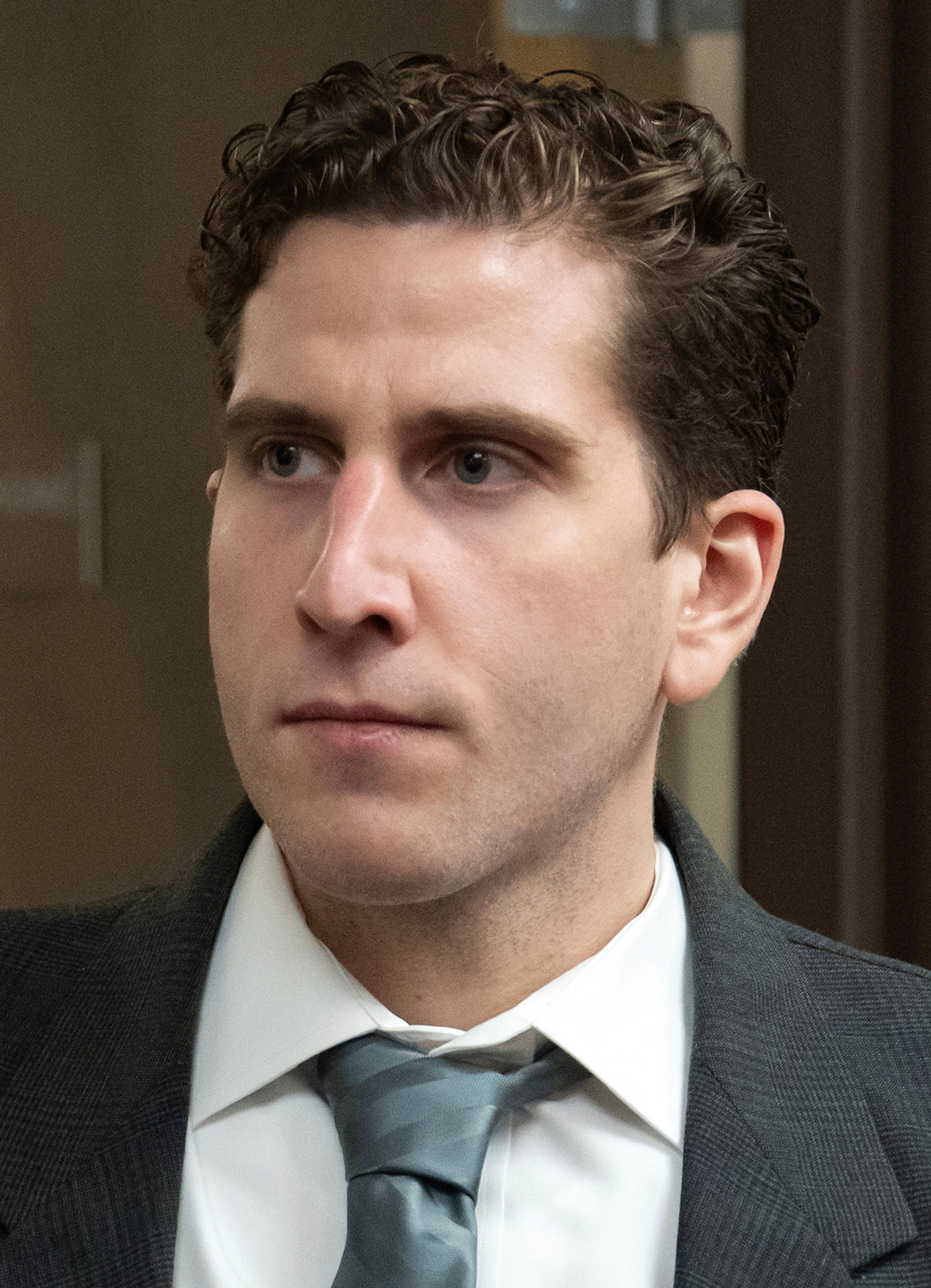She’s made the ‘ungrade’
Pullman teacher Johanna Brown, a finalist for the Presidential Award for Excellence in Math and Teaching, says putting students’ needs first is what makes her teaching style a success
When Pullman teacher Johanna Brown first learned she was one of six finalists from Washington for the nation’s highest honor in STEM teaching, she said her first reaction was surprise.
Earlier this month, it was announced Brown and five other K-12 teachers in the areas science, technology, engineering and mathematics were entering final consideration for the Presidential Award for Excellence in Math and Science Teaching.
Brown, who teaches chemistry and computer science at Pullman High School, said a fellow science teacher from Ohio nominated her for the award. While she went through a lengthy application process, including submitting a nine-page document outlining her teaching philosophy and a video of her teaching a virtual class, she didn’t expect to be considered as a finalist. She said it was much needed encouragement at the end of a challenging year.
“Not that I necessarily need the validation to keep getting better, but it just kind of felt like, ‘OK, other people see that what I’m doing is meaningful,’ ” she said. “It’s been really nice to have that — especially this year, because it was just so tough to teach online and hybrid.”
A Spokane native, Brown said her path to becoming a teacher was unconventional. After obtaining a bachelor’s degree in chemistry, she got a job as a hall director at Washington State University, and the responsibilities included chemistry tutoring and teaching a leadership class. She said it was then she began to realize she might really enjoy teaching chemistry, saying, “I did the (masters in teaching) program at WSU and haven’t looked back.”
While she hadn’t before thought of herself as the teacher type, she said there were some early signs that the profession would be a good fit for her.
“One of my favorite teachers in high school told me I should be a teacher and I said, ‘No, I don’t want to be a teacher,’ ” she said. “I kind of pushed back against it for a while and I ended up loving it — it’s really fulfilling. I can’t imagine doing something else.”
Brown said a large part of what makes her teaching style successful is that she puts students’ mental and emotional needs first. She said this includes working to make the classroom a less stressful environment, seeking weekly feedback from students and doing something she called “ungrading,” — an assessment style that focuses on mastery of skills over a points-based letter grade. She said this approach includes giving students the opportunity to receive feedback, make revisions to their work and improve rather than having their academic success be pinned to a rigid and often arbitrary points system.
“I really believe that we can’t learn until we feel safe to do so,” Brown said. “Especially this year, I just worked so hard to take the stress off of students because actually you can actually learn more when you don’t have a high-stakes test.”
Pullman High student Selma Ragle, who just finished her junior year, said Brown is adored in her classes for a variety of reasons and among them is her tireless support for each individual student. Ragle said not only did Brown adapt quickly and creatively to online and hybrid instruction during pandemic school closures, but she went to great lengths to make sure students were learning the material.
While some are skeptical of this approach, Selma said ungrading in particular has taken some of the tension out of the classroom environment, which Brown argued makes her students better able to learn.
“It’s very comforting to know that she really cares about us learning the material and not just getting a good grade or like a check mark on our assignments,” Ragle said. “I see people are really motivated and I think it actually encourages people to work harder, because they really like the teacher and they understand that she understands us.”
Pullman High School Principal Juston Pollestad said Brown’s popularity among her students is well-earned and part of a larger pattern. He said her bright, positive manner and devotion to her profession allow her to form connections with students, faculty, staff, administrators and community members alike.
While she said it’s an honor to even be considered as a finalist, if she were to actually win the national presidential award, she hopes it will help her to lend a stronger voice in support of STEM education in her state.
“People who do get the national award, one thing that’s great is they get to be strong advocates,” Brown said. “When you have that behind your name, you can really push for great science education in your state.”
The president can select up to 108 awardees, who are typically announced in the fall. The honor comes with a $10,000 cash prize and a trip to Washington D.C.
Jackson can be reached at (208) 883-4636, or by email to sjackson@dnews.com.








